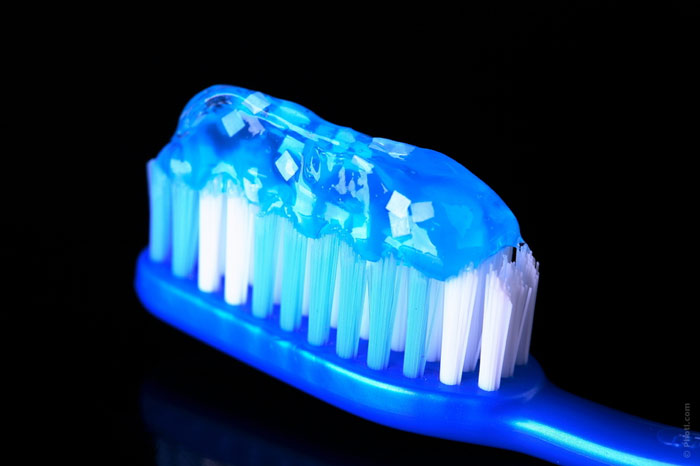To be healthy, it is not enough to go to the gym three times a week. We must get rid of heaps of little things that are quietly poisoning our life. Oddly enough, these are ordinary things that are stored in our kitchen or bathroom.

We do not even know how many harmful things are kept in our cupboards and refrigerators, except mayonnaise and food additives. Our surroundings are full of the objects which help us remain clean and fresh, we store and save foods… We think these things help us, but in fact it’s time to throw them away: they are rotten. So prepare garbage bags, put on gloves and start the general cleaning.
1. Plastic containers for food
First step: go to the shelf where you keep plastic food containers. Turn them upside down and carefully look at the markings. If there are inscriptions 7, PC (polycarbonate), A (BPA), or S (BPS), throw them out without pity. Toxic plastic in kitchen accessories becomes increasingly rare, but it is still possible to find it. These containers definitely have nothing to do in the house of a healthy person; they became obsolete long ago.
2. Air fresheners
Air fresheners should not be used at home. Although manufacturers compete to promote the safety of these products, such cans and jars are still full of chemicals, including the substances which in high doses can damage the reproductive system and produce the negative impact on the development of an organism. Of course, we do not constantly breathe air fresheners. But why should you need even small doses of chemicals, if you can eliminate the cause of bad smell instead of spraying the lavender flavor?
3. Antibacterial soap
Antibacterial soap is a great marketing trick. This soap is not a medical antiseptic, and there is virtually no difference between normal and antibacterial soap. But there are a great number of side effects instead. These are bacterial resistance to triclosan (the main component of antibacterial soap) and a negative impact on hormones in animals (revealed by the study of the Ministry of Health and Human Services of the USA in 2014). Although the study did not confirm a similar impact of triclosan on people, it is better to abandon experiments on yourself.
4. Toothbrushes
How often should you change your toothbrush? Once in two months. Yes, everyone knows that. And how old is your toothbrush? If you brush your teeth twice a day, the brush is spoilt very quickly, even if it looks like new. Its maximum lifetime is three months; after that, the effectiveness of brushing your teeth is reduced by many times.
5. Everything that annoys you
You need to think both about your physical and mental health. If you do not like something, it is better to remove the annoying thing. For example, right into the litterbin. An old stand for footwear, ugly furniture, or stupid flowered curtains can spoil the mood in the morning. So throw them away and do not feel pity.
6. Leftovers
Of course, it is necessary to be somewhat thrifty, since the crisis does not allow throwing away the food that still looks quite nice. But if you have the food of animal origin in the fridge, it cannot wait for more than three days. During this time, you should either eat it or freeze. Otherwise you’ll have to throw it away. You may enjoy one-week-old soup, but Listeria (the genus of bacteria that cause severe and even fatal disease and can multiply at low temperatures) like it even more.
7. Mascara
It is time to get rid of the old tube of mascara, which you happen to come across in the beautician bag from time to time. The reasons for that are as follows: the liquid environment of the mascara is a perfect home for bacteria. The shelf life of the cosmetics for eyelashes is the same as that of a toothbrush – two or three months. After that, you should not regret throwing away the dried up mascara because every time you use it you get a lot of bacteria directly into the eyes. Eyelashes are not just for beauty; they also protect the eyes from dust and germs, whereas the old mascara can completely cancel the function.
8. Contact lenses
The germs from contact lenses get even closer to the eyes than the microbes in mascara. Do you always change your soft contact lenses in time? Or have you forgotten to do this again? The shorter the life of the lens is, the higher are its quality, safety, and price. But the old lens, no matter how well you clean it, always causes a risk. Conjunctivitis, inflammation, discomfort and even corneal ulcer… It is better not to wear lenses at all than to face with such consequences. Throw them away in time.
9. Packages with old spices
If you have jars with spices that you open extremely rarely, you may need to replace the contents. There is nothing particularly wrong about dry spices, but it is pointless to keep the old spices: they will give you neither taste, nor flavor. Get rid of the old deposits and buy new spices in small portions.
10. Last year’s sunscreen
Do you still keep the cream from last summer? It will not save you from burns, even if you pour the whole jar at once. Over time, substances that protect the skin from harmful ultraviolet radiation are destroyed. Premature aging, sunburns, and dryness are not worth keeping the old cream.
11. Lip gloss
Everything you use for health or treatment of the mouth quickly becomes a breeding ground for bacteria. Every time you apply lip gloss and place the brush back into the tube, you add a portion of microbes in your lip gloss. What should you do? Get rid of everything after six months.
12. Filters in the air conditioner
It’s time to turn on the air conditioner in the office or at home, which means it’s time to change the filters. According to the US Environmental Protection Agency, indoor air is 25-100 times worse than in the street. Air conditioners with cleaners can improve the situation, but if the filter is not replaced, dust, dirt and mildew just scatter around the room. Look into the user manual of your air conditioning appliance and check how often you need to wash or remove filters.
13. An old bra
It is embarrassing to remind you that even if it is your “happy” bra, it cannot be worn forever. Stretched cups and straps do not support your breasts, and thus will not save from aging and deformation of the breast tissue.
14. Sponges for washing dishes
Sponges for washing dishes have a difficult life. Damp, humid, full of microbes, including even the salmonella. After washing, the wet sponge is thrown in the sink and left there. It makes no sense to explain how good the bacteria feel in the nurturing environment that contains remnants of food and water. The way out is to use a washcloth (which dries faster than a sponge), or change the sponge more often, without waiting for it to fall apart completely.
15. Plastic cutting boards
We used to think that timber accumulates more microbes than the plastic, that plastic boards are hygienic, and that they last longer. Almost all of it is true. Although a recent study, conducted by the scientists at the University of Wisconsin, showed that the resin present in timber has antibacterial properties. Whatever it may be, scratches and cuts are left by knives, and they appear on plastic over time. Rinsing them is completely unrealistic. Plastic cutting boards should not serve in the kitchen for years. Throw them away and buy new ones.










